Select Language
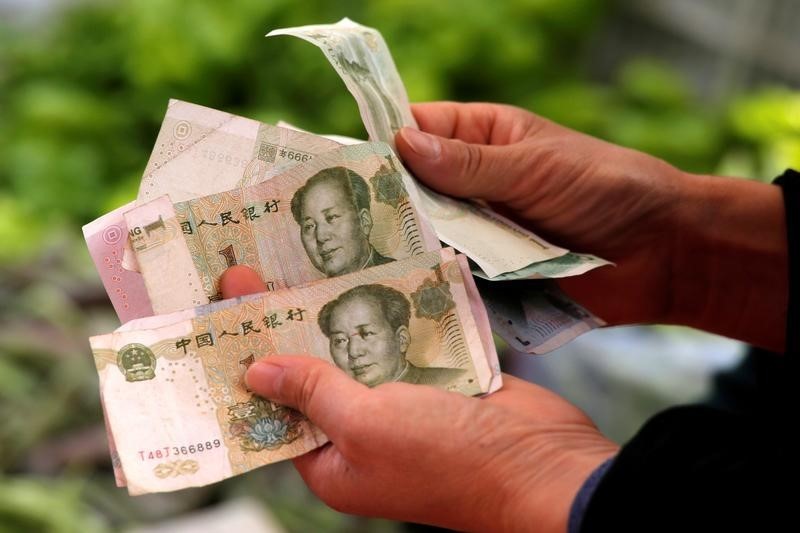
Investing.com-- Most Asian currencies extended declines on Tuesday with the Chinese yuan hitting a one-year low, as markets assessed the impact of new U.S. export restrictions targeting China’s semiconductor industry.
The U.S. is set to implement its third major crackdown on China's semiconductor industry, targeting 140 entities with new export restrictions aimed at curbing China’s access to advanced chips and equipment vital for artificial intelligence and other high-tech applications.
The move, which is seen as a direct challenge to China's technological ambitions, stirred volatility in regional currency markets, particularly for the Chinese yuan.
This comes at a time when sentiment around regional currencies had already been dampened due to U.S. President-elect Donald Trump's recent threat to impose 100% tariffs on goods from BRICS nations (Brazil, Russia, India, China, and South Africa) if they move to undermine the U.S. dollar by creating or backing alternative currencies. Before that, he vowed to impose additional tariffs on China.
Chinese yuan hits 1-yr low on new US export curbs
The Chinese yuan fell against the dollar, with the onshore USD/CNY pair rising 0.3% to its highest level since mid-November 2023.
The latest export restrictions are expected to exacerbate China’s challenges in its push for technological self-sufficiency, further dampening investor sentiment towards the yuan.
Markets across the region are closely watching the U.S.-China trade situation, with fears of further restrictions or retaliatory measures adding to the volatility.
The Australian dollar, which is sensitive to the Chinese economy, weakened slightly, with the AUD/USD pair remaining close to four-month lows. Third-quarter Australian gross domestic product data is due on Wednesday.
Dollar strength creates further pressure on Asia FX
Asian currencies have also faced downward pressure from the dollar, which gained for eight consecutive weeks before falling in the last one. Expectations of a slower rate cut path due to stubborn inflation and chances of inflation remaining high with the incoming president Trump have supported the greenback.
The US Dollar Index extended gains, inching up 0.1%, while the US Dollar Index Futures also ticked up 0.1%.
The South Korean won's USD/KRW pair, heavily influenced by semiconductor exports, was largely unchanged. South Korean consumer inflation read softer than expected for November, keeping the prospect of more interest rate cuts by the Bank of Korea in play.
The Japanese yen's USD/JPY pair rose 0.4%, and the Taiwan dollar's USD/TWD pair edged 0.2% higher, while India's USD/INR was muted.
The Philippine peso's USD/PHP pair was largely unchanged at 58.685 per U.S. dollar.
The Philippines revised its 2024 economic growth forecast, lowering the target to 6.0%–6.5%, down from a previous high of 7%. This adjustment comes amid ongoing domestic and global uncertainties, according to a government panel. Additionally, the peso’s expected average for 2024 has been adjusted to a range of 57.00–57.50 per dollar, from the earlier estimate of 56.00–58.00.

By Patricia Zengerle
(Reuters) -The United States will send Ukraine $725 million of missiles, ammunition, anti-personnel mines and other weapons, Secretary of State Antony Blinken said on Monday, as President Joe Biden's outgoing administration seeks to bolster Kyiv in its war with Russian invaders before leaving office in January.
The assistance will include Stinger missiles, ammunition for High Mobility Artillery Rocket Systems (HIMARS), drones and land mines, among other items, Blinken said in a statement.
Reuters reported last week that the Biden administration planned to provide the equipment, much of it anti-tank weapons, to ward off Russia's attacking forces.
Moscow's troops have been capturing village after village in Ukraine's east, part of a drive to seize the industrial Donbas region, while Russian airstrikes target a hobbled Ukrainian energy grid as winter sets in.
"The United States and more than 50 nations stand united to ensure Ukraine has the capabilities it needs to defend itself against Russian aggression," Blinken's statement said.
The announcement marks a steep uptick in size from Biden's recent use of so-called Presidential Drawdown Authority (PDA), which allows the U.S. to draw from current weapons stocks to help allies in an emergency.
Recent PDA announcements have typically ranged from $125 million to $250 million. Biden has an estimated $4 billion to $5 billion in PDA already authorized by Congress that he is expected to use for Ukraine before Republican President-elect Donald Trump takes office on Jan. 20.
WAITING FOR TRUMP
Trump is widely expected to change U.S. strategy on Ukraine, after he criticized the scale of Biden's support for Kyiv and made quickly winding down the war a central campaign promise. Last week, he picked Keith Kellogg (NYSE:K), a retired lieutenant general who presented him with a plan to end the war, to serve as special envoy for the conflict.
Kellogg's plan for ending the war, which began when Russia invaded Ukrainian sovereign territory, involves freezing the battle lines at their prevailing locations and forcing both Kyiv and Moscow to the negotiating table, Reuters reported in June.
The tranche of weapons represents the first time in decades that the United States has exported land mines, the use of which is controversial because of the potential harm to civilians.
Although more than 160 countries have signed a treaty banning their use, Kyiv has been asking for them since Russia launched its full-scale invasion in early 2022, and Russian forces have used them on the front lines.
The land mines that would be sent to Ukraine are "non-persistent," with a power system that lasts for just a short time, leaving the devices non-lethal. This means that - unlike older landmines - they would not threaten civilians indefinitely.
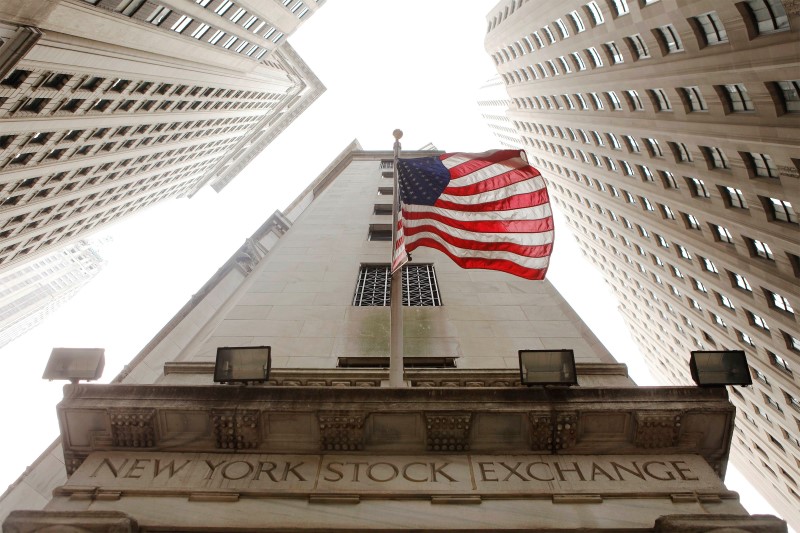
Investing.com-- U.S. stock index futures moved little on Monday evening after technology stocks spurred a positive session on Wall Street, with focus turning to more key signals on interest rates due this week.
Gains in tech helped markets weather threats of more tariff action from President-elect Donald Trump, who threatened to impose steep tariffs on the BRICS group of nations.
Comments from Federal Reserve officials also continued to trickle in, as investors maintained their bets on a 25 basis point cut in December. But data due this week is expected to factor into the upcoming rate decision.
S&P 500 Futures steadied at 6,063.0 points, while Nasdaq 100 Futures fell 0.1% to 21,206.75 points by 18:42 ET (23:42 GMT). Dow Jones Futures fell 0.1% to 44,881.0 points.
Fedspeak, payrolls data awaited
Focus this week is on addresses from a slew of Fed officials, most notably Chair Jerome Powell, for more cues on the central bank’s plans for interest rates.
While markets have so far maintained expectations for a December rate cut, the longer term outlook is more uncertain, especially on the prospect of inflationary policies under a Trump administration.
Trump's protectionist stance on trade and immigration is expected to potentially underpin inflation, keeping rates relatively high in the long term.
Focus this week is also on key nonfarm payrolls data for November, due on Friday. Strength in the labor market is expected to deter the Fed from cutting rates too quickly.
Fed Governor Christopher Waller said on Monday that while he leaned towards a 25 bps cut in December, data due in the coming days was likely to factor into the central bank’s decision.
Tesla falls as Delaware court rules against $56 bln Musk pay package
Among major aftermarket movers, Tesla Inc (NASDAQ:TSLA) fell more than 1% after a Delaware court upheld its decision to invalidate Elon Musk’s $56 billion compensation package.
The decision came even as Tesla shareholders voted to reinstate the package, and was deemed excessive by the court, which had first struck down the package in January.
Still, Tesla shares remained close to their highest levels since early-2022, as investors bet that the firm will benefit from Musk’s growing influence in Washington.
Tech puts S&P 500, Nasdaq at record highs, Dow lags
Gains in technology stocks underpinned Wall Street indexes on Monday, although the Dow fell from recent peaks amid some weakness in economically sensitive sectors.
The S&P 500 rose 0.2% to 6,047.15 points- a record high- while the NASDAQ Composite surged nearly 1% to a record high of 19,403.58 points. The Dow Jones Industrial Average fell 0.3% to 44,782.0 points.
Heavyweight tech stocks were the biggest boost to Wall Street, with the “Magnificent Seven” rising between 1.3% and 3.5%.
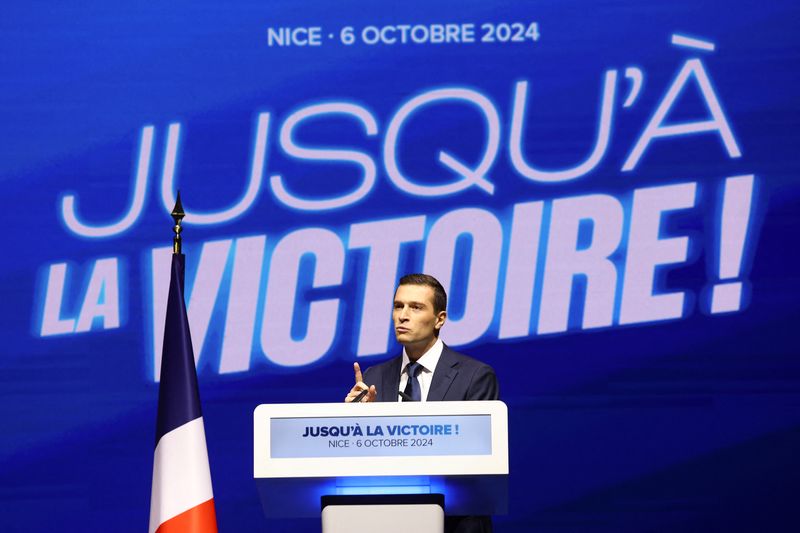
By Elizabeth Pineau and Ingrid Melander
PARIS (Reuters) - The French government is all but certain to collapse later this week after far-right and left-wing parties submitted no-confidence motions on Monday against Prime Minister Michel Barnier.
Investors immediately punished French assets as the latest developments plunged the euro zone's second-biggest economy deeper into political crisis, with serious doubt cast over whether the annual budget will be approved.
"The French have had enough," National Rally (RN) leader Marine Le Pen told reporters in parliament, saying Barnier, who only became prime minister in early September, had made things worse and needed to be pushed out. "We are proposing a motion of no confidence against the government," she said.
Barring a last-minute surprise, Barnier's fragile coalition will be the first French government to be forced out by a no-confidence vote since 1962.
A government collapse would leave a hole at the heart of Europe, with Germany also in election mode, weeks ahead of U.S. President-elect Donald Trump re-entering the White House.
RN lawmakers and the left combined have enough votes to topple Barnier and Le Pen confirmed her party would vote for the left-wing coalition's no-confidence bill on top of the RN's own bill. That vote is likely to be held on Wednesday.
The parties announced their no-confidence motions after Barnier said earlier on Monday that he would try to ram a social security bill through parliament without a vote as a last-minute concession proved insufficient to win RN's support for the legislation.

SHANGHAI (Reuters) -China's 10-year yield dropped below 2% to hit its lowest point on record on Monday, breaking a psychological barrier as a sputtering economy and bets on further rate cuts drive investors into the safety of bonds.
Prices in China's bond market have been on a decade-long rally - one that kicked into a higher gear roughly two years ago as the country's property sector woes and weakness in the stock market combined to prompt a flood of funds flowing into bank deposits and the debt market.
A ban on offering preferential deposit rates on Friday was the latest signal that rates are staying low.
Benchmark 10-year yields dropped 5 basis points (bps) to 1.9750% in Monday afternoon trade. That's the lowest point in data from China Central Depository & Clearing
Despite efforts from authorities to restrain the bond rally, including episodes of central bank selling and an increase in issuance, investor appetite seems insatiable and analysts expect the rally to continue into next year.
"Fundamentals are still very weak. Policies are merely support to prevent the economy from a hard landing, not a strong stimulus," said Ke Zong, a former portfolio manager at hedge fund Mingshi.
He added that previously hesitant funds and institutions were still under-allocated, and insurance companies often allocate in advance before the new year starts, driving down yields.
In addition to a cautious outlook for China's economic growth, the likelihood of U.S. tariffs on China imports mean China rates should rally next year, Morgan Stanley (NYSE:MS) strategists said in a note, adding that the bank's economists expect China's central bank to cut the policy rate by 40 bps by the end of the first quarter.
China's 10-year treasury futures, which move inversely to yields, jumped 0.4% on Monday to finish at a record closing high. The 30-year treasury yield fell 4 bps to 2.16%.
After spending much of the past ten years more than a hundred basis points higher than U.S. rates as China's economy hummed along, 10-year Chinese yields speared below U.S. rates in 2022 when China's economy fared much worse than the U.S. economy in the wake of the pandemic.
Chinese 10-year bonds now yield 222 bps less than their U.S. counterparts. The last time the gap was so large was in the early 2000s when global markets were recovering from the bursting of the internet stocks bubble.
DEPOSIT RATES DROP
The People's Bank of China (PBOC) has sought to bring deposit rates offered by banks to non-bank financial institutions such as brokerages and fund companies in line with the 7-day reverse repo rate, a policy rate, which is currently at 1.5%.
The policy pushes down short-term rates, and could "become a new driver for the downward trend in long-term bond yields," Yang Yewei, an analyst at Guoshen Securities, said in a note.
Indeed, the interest rate on one-year AAA-rated negotiable certificates of deposit (NCDs) dropped roughly 10 basis points on Monday to below 1.7%. NCDs are a popular short-term debt instrument issued between banks for their financing needs.
Funding conditions remain supportive for the bond bulls, even though more than 1 trillion yuan of refinancing bonds have been issued in November.
The PBOC said last Friday it injected 800 billion yuan via 3-month outright reverse repos and bought a net 200 billion yuan of government bonds in November.
Chen Jianheng, an analyst at China International Capital Corp, said in a recent webinar that loose monetary policy would reduce interbank deposit rates and help push down 10-year yields to around 1.7-1.9% next year.
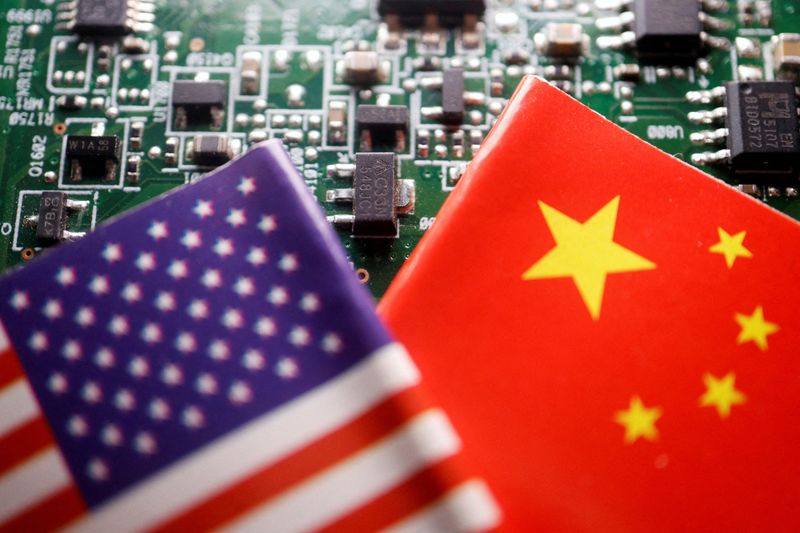
By Karen Freifeld and David Shepardson
(Reuters) - The U.S. will launch its third crackdown in three years on China's semiconductor industry on Monday, restricting exports to 140 companies including chip equipment maker Naura Technology Group, among other moves, according to two people familiar with the matter.
The effort to hobble Beijing's chipmaking ambitions will also hit Chinese chip toolmakers Piotech and SiCarrier Technology with new export restrictions as part of the package, which also takes aim at shipments of advanced memory chips and more chipmaking tools to China.
The move marks one of the Biden Administration's last large scale effort to stymy China's ability to access and produce chips that can help advance artificial intelligence for military applications or otherwise threaten U.S. national security.
It comes just weeks before the swearing in of Republican former president Donald Trump, who is expected to keep in place many of Biden's tough-on-China measures.
The package includes curbs on China-bound shipments of high bandwidth memory (HBM) chips, which are critical for high-end applications like AI training; new curbs on 24 additional chipmaking tools and three software tools; and new export restrictions on chipmaking equipment manufactured in countries including Singapore and Malaysia.
The tool controls will likely hurt Lam Research (NASDAQ:LRCX), KLA and Applied Materials (NASDAQ:AMAT), as well as non-U.S. companies like Dutch equipment maker ASM International (AS:ASMI).
Among Chinese companies facing new restrictions are nearly two dozen semiconductor companies, two investment companies and over 100 chipmaking tool makers, the sources said. U.S. lawmakers say some of the companies, including Swaysure Technology Co, Qingdao SiEn, and Shenzhen Pensun Technology Co, work with China's Huawei Technologies, the telecommunications equipment leader once hobbled by U.S. sanctions and now at the center of China's advanced chip production and development.
They will be added to the entity list, which bars U.S. suppliers from shipping to them without first receiving a special license. China has stepped up its drive to become self-sufficient in the semiconductor sector in recent years, as the U.S. and other countries have restricted exports of the advanced chips and the tools to make them. However, it remains years behind chip industry leaders like Nvidia (NASDAQ:NVDA) in AI chips and chip equipment maker ASML (AS:ASML) in the Netherlands.
The U.S. also is poised to place additional restrictions on Semiconductor Manufacturing International, China's largest contract chip manufacturer, which was placed on the Entity List in 2020 but with a policy that allowed billions of dollars worth of licenses to ship goods to it to be granted.
For the first time, the U.S. will add two companies that make investments in chips to the entity list. Chinese private equity firm Wise (LON:WISEa) Road Capital and tech firm Wingtech Technology Co will be added.
Companies seeking licenses to ship to firms on the Entity List generally get denied.
DUTCH AND JAPANESE EXEMPTED
An aspect of the new package that addresses the foreign direct product rule could hurt some U.S. allies by limiting what their companies can ship to China. The new rule will expand U.S. powers to curb exports of chipmaking equipment by U.S., Japanese, and Dutch manufacturers made in other parts of the world to certain chip plants in China.
Equipment made in Malaysia, Singapore, Israel, Taiwan and South Korea is subject to the rule while the Netherlands and Japan will be exempt. The expanded foreign direct product rule will apply to 16 companies on the entity list that are seen as the most important to China's most advanced chipmaking ambitions.
The rule will also lower to zero the amount of U.S. content that determines when certain foreign items are subject to U.S. control. That will allow the U.S. to regulate any item shipped to China from overseas if it contains any U.S. chips.
The new rules are being released after lengthy discussions with Japan and the Netherlands, which, along with the U.S., dominate the production of advanced chipmaking equipment. The U.S. plans to exempt countries that put in place similar controls, the people said.
Another rule in the package restricts memory used in AI chips that correspond with what is known as "HBM 2" and higher, technology made by South Korea's Samsung and SK Hynix and U.S.-based Micron (NASDAQ:MU). Industry sources only expect Samsung Electronics (KS:005930) to be impacted. The latest rules are the third major package of chip-related export restrictions on China implemented under the Biden administration. In October 2022, the U.S. published a sweeping set of controls to curb the sale and manufacture of certain high-end chips which were considered to be the biggest shift in U.S. tech policy toward China since the 1990s.
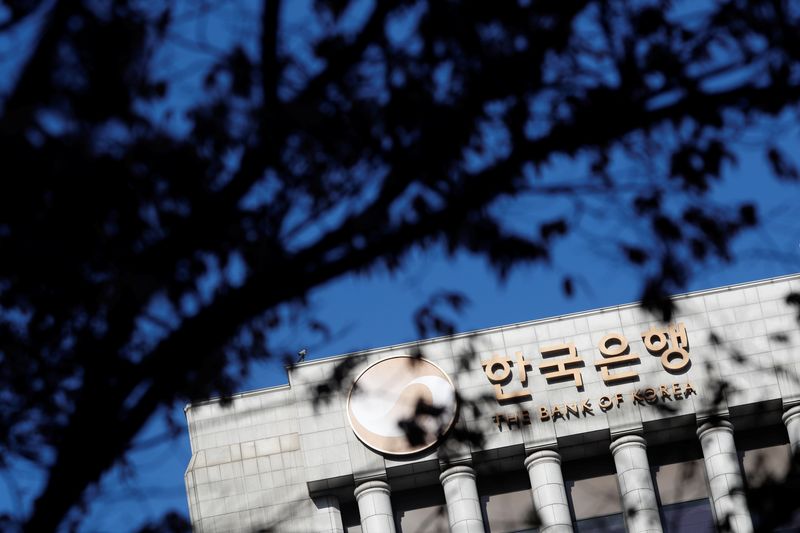
By Anant Chandak
BENGALURU (Reuters) - The Bank of Korea will take a pass in January but cut interest rates by a quarter-point in February following an unexpected reduction on Thursday to support a weakening economy, according to economists in a Reuters snap poll.
To boost activity in Asia's fourth-largest economy, which narrowly avoided a recession last quarter, the BOK cut rates for a second meeting in a row on Nov. 28 - the first back-to-back reductions since early 2009. Inflation has largely stayed under control.
However, BOK Governor Rhee Chang-yong said the future remains uncertain given President-elect Donald Trump's plans to hike tariffs. The U.S. is one of South Korea's largest export destinations.
A strong majority of economists, 16 of 22 in a snap poll conducted Nov. 28-29, forecast the BOK would cut its base rate by 25 basis points to 2.75% in February.
The other six predicted the next quarter-point cut would come in January.
"We now expect one more cut as early as February 2025 and a faster recalibration of policy stance to neutral ... while acknowledging uncertainties related to U.S. trade policy – the timing of the tariffs, their coverage, and their magnitude – could alter the path," Bum Ki Son, economist at Barclays (LON:BARC), said.
He was one of the few economists to correctly predict the surprise November cut.
"With the BOK's concern on growth also becoming structural, given intensified competition and China's aggressive investment, we believe the speed of policy normalisation to neutral could be faster than we expected," Bum Ki Son added.
Median forecasts indicated a cumulative 75 basis-point cut next year, bringing the policy rate to 2.25% by end-September, compared with 2.50% expected in a poll taken before Thursday's central bank meeting.
But there was no clear consensus on the rate at end-September, with 11 of 22 economists forecasting 2.25%, 10 saying 2.50% and one 2.00%.
"The tone of the statement and Governor Rhee's press conference makes clear that further easing is on the way and that supporting economic growth was now the central bank's main priority," Gareth Leather, senior Asia economist at Capital Economics, said.
"We expect growth to struggle over the coming year. Although exports should continue to perform strongly, this is likely to be offset by further weakness in the labour market and the continued struggles of the property sector."
The BOK downgraded its forecast for economic growth in 2025 to 1.9%, weaker than the previous forecast of 2.1%.
(Other stories from the November Reuters global economic poll)
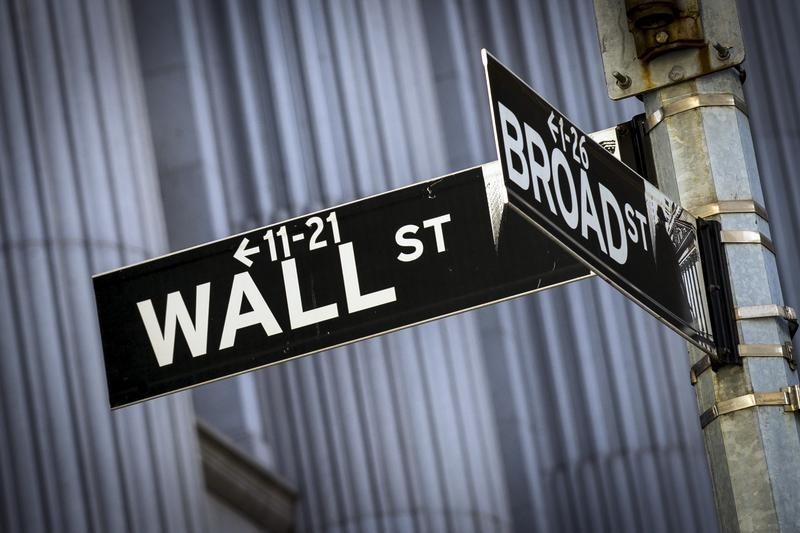
Investing.com-- U.S. stock index futures fell slightly on Sunday evening following more warnings of trade tariffs from President-elect Donald Trump, while investors also awaited a slew of cues on interest rates this week.
Futures fell after Wall Street indexes raced to record highs on Friday, as investors cheered persistent signs of resilience in the U.S. economy. Investors also largely maintained bets that the Federal Reserve will cut interest rates in December.
S&P 500 Futures fell 0.1% to 6,047.50 points, while Nasdaq 100 Futures fell 0.1% to 20,971.75 points by 19:03 ET (00:03 GMT). Dow Jones Futures fell 0.1% to 45,028.0 points.
Trump threatens ‘100% tariffs’ against BRICS countries
Trump on Sunday threatened to impose “100% tariffs” on the BRICS bloc of countries, which includes China.
Trump criticized the bloc’s attempts to form its own currency and shift away from the U.S. dollar, threatening to cut the bloc off from U.S. trade over the move. He called for commitments to the dollar from the bloc.
Trump’s latest comments come after he had last week threatened higher import tariffs against China, Mexico and Canada, rattling global markets with the prospect of more protectionist policies in the U.S.
Investors also feared retaliatory measures from U.S. trading partners, especially China, which could spark a renewed trade war between the world’s biggest economies.
Wall St at record highs with rate cues in focus
Wall Street indexes surged to record highs in shortened trading on Friday, as investors cheered recent signs of resilience in the economy and also maintained bets that the Fed will cut rates later in December.
Investing.com-- U.S. stock index futures fell slightly on Sunday evening following more warnings of trade tariffs from President-elect Donald Trump, while investors also awaited a slew of cues on interest rates this week.
Futures fell after Wall Street indexes raced to record highs on Friday, as investors cheered persistent signs of resilience in the U.S. economy. Investors also largely maintained bets that the Federal Reserve will cut interest rates in December.
S&P 500 Futures fell 0.1% to 6,047.50 points, while Nasdaq 100 Futures fell 0.1% to 20,971.75 points by 19:03 ET (00:03 GMT). Dow Jones Futures fell 0.1% to 45,028.0 points.
Trump threatens ‘100% tariffs’ against BRICS countries
Trump on Sunday threatened to impose “100% tariffs” on the BRICS bloc of countries, which includes China.
Trump criticized the bloc’s attempts to form its own currency and shift away from the U.S. dollar, threatening to cut the bloc off from U.S. trade over the move. He called for commitments to the dollar from the bloc.
Trump’s latest comments come after he had last week threatened higher import tariffs against China, Mexico and Canada, rattling global markets with the prospect of more protectionist policies in the U.S.
Investors also feared retaliatory measures from U.S. trading partners, especially China, which could spark a renewed trade war between the world’s biggest economies.
Wall St at record highs with rate cues in focus
Wall Street indexes surged to record highs in shortened trading on Friday, as investors cheered recent signs of resilience in the economy and also maintained bets that the Fed will cut rates later in December.
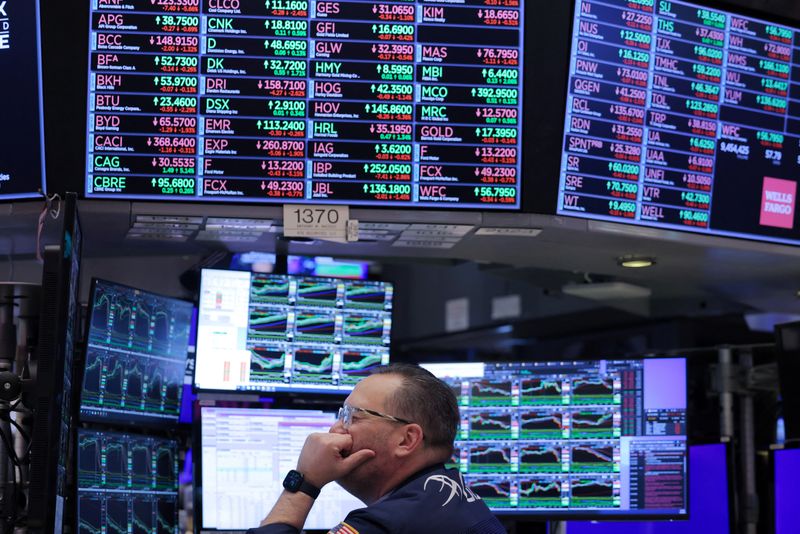
Investing.com -- With the U.S. stock market close to record highs investors will be watching Friday’s jobs report for fresh insights into how the economy is faring ahead of the Federal Reserve’s December meeting. Investors will also get to hear from Fed Chair Jerome Powell and get an update on the outlook for global growth as tariff threats mount. Here's your look at what's happening in markets for the week ahead.
1. U.S. jobs report
Strong economic growth has driven stocks higher all year, despite concerns that inflation could rebound if the central bank lowers rates too far, undoing two years of progress in curbing price pressures.
A repeat of September’s blowout jobs report could disrupt expectations for future Fed rate cuts, threatening to undermine a key support for the stock rally.
Last week’s minutes from the Fed's latest policy meeting revealed a lack of consensus among officials on the path of future rate cuts.
Economists are expecting the economy to have added 202,000 jobs in November after disruptions from strikes and hurricanes led to weakness in October’s report.
2. Powell comments
Fed Chair Jerome Powell is due to take part in a moderated discussion at the New York Times DealBook Summit on Wednesday and investors will be closely watching for any comments on the strength of the labor market and the inflation outlook or how much the Fed may cut intertest rates at its upcoming December meeting.
Apart from Powell, several other Fed officials are scheduled to make appearances during the week including Governors Christopher Waller and Michelle Bowman, New York Fed President John Williams, St. Louis Fed President Alberto Musalem, San Francisco Fed President Mary Daly, Cleveland Fed President Beth Hammack and Chicago Fed President Austan Goolsbee.
3. Tariff threat
Last week President-elect Trump jolted markets when he threatened to impose 25% tariffs on all products from Mexico and Canada and an additional 10% on goods from China as soon as he is inaugurated on January 20th.
The pledge has raised fears of a trade war between the U.S. and two of its biggest trading partners. The auto sector is particularly vulnerable to higher tariffs as it utilizes a highly integrated supply chain across the U.S., Canada, and Mexico.
Meanwhile, analysts think Beijing could implement fresh stimulus measures to offset the economic drag of a trade war and several say the ultimate result could be an acceleration of China's high-tech self-sufficiency drive.
Investors have been pricing in expectations that Trump's pro-business policies could spur economic growth and corporate profits. However, many economists fear that tariffs will stoke inflation, slow the pace of the Fed's rate cuts and weigh on global growth.
4. OECD Outlook
The OECD will publish its latest Economic Outlook, containing analysis and projections for the world economy on Wednesday.
In its September forecast the Paris-based organization said it expected the global economy to grow 3.2% both this and next year, nudging up its 2024 forecast from 3.1% previously while leaving 2025 unchanged.
With inflation heading towards central bank targets, the OECD projected that the Fed’s main interest rate would ease to 3.5% by the end of 2025 from 4.75%-5% currently and European Central Bank would cut to 2.25% from 3.5% now.
5. Oil prices
Oil prices ended last week around 3% lower amid easing concern over supply risks from the Israel-Hezbollah conflict and the prospect of increased supply in 2025 even as OPEC+ is expected to extend output cuts.
The OPEC+ group comprising the Organization of the Petroleum Exporting Countries and allies including Russia delayed its next policy meeting to Dec. 5. OPEC+ is expected to decide on a further extension to production cuts at the meeting.
Last month OPEC lowered its forecast for global oil demand growth for 2024 and 2025 amid economic weakness in top importer China, as well as in India and other regions.
The International Energy Agency, meanwhile, expects global oil supply to exceed demand in 2025 even if cuts remain in place from OPEC+.

BANGKOK (Reuters) - Thailand's economy improved in October due to tourism, exports and private consumption, which was helped by the government's economic stimulus measures, the Bank of Thailand said on Friday.
Exports, a key driver of the economy, rose 14.2% in October from a year earlier, while imports rose 17.1%, resulting in a trade surplus of $1.4 billion, the Bank of Thailand (BOT) said.
As such, industrial production increased in line with domestic demand and exports, excluding automobiles, it said.
The current account surplus was $0.7 billion in October, up slightly from September's surplus of $0.6 billion, it said.
Private consumption increased 0.8% in October from September and private investment rose 4.5%, the central bank said, adding that government spending also rose sharply.
Tourism, another key economic driver, helped the service sectors. However, structural impediments pressured business and household income in some groups, the BOT said.
The BOT cut its policy interest rate by 25 basis points to 2.25% in a surprise decision at its Oct. 16 review. It also raised its 2024 GDP growth forecast to 2.7% from 2.6%, but trimmed its 2025 growth outlook to 2.9% from 3.0%.
The economy grew an annual 3% in the July-September quarter, the fastest pace in two years, but officials and analysts saw increased challenges to maintaining the momentum next year.

